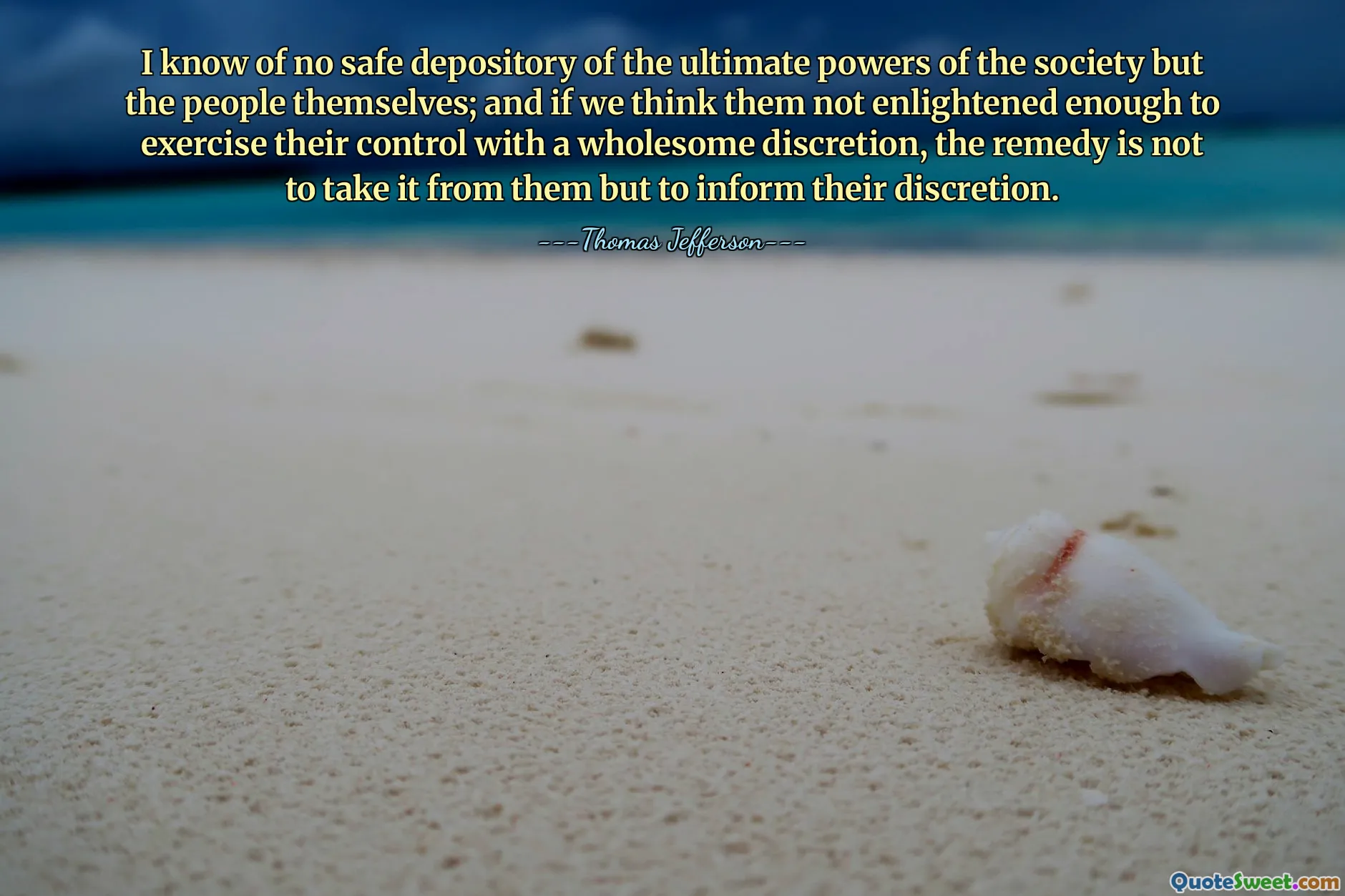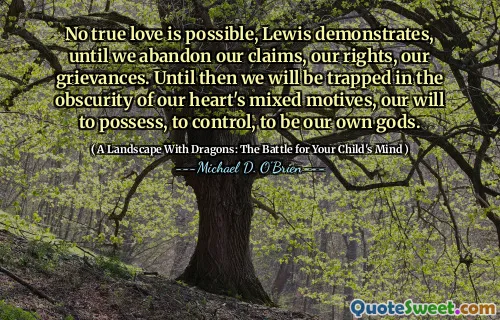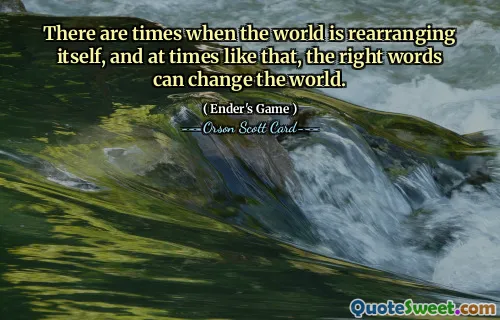
I know of no safe depository of the ultimate powers of the society but the people themselves; and if we think them not enlightened enough to exercise their control with a wholesome discretion, the remedy is not to take it from them but to inform their discretion.
This quote underscores a fundamental principle of democratic governance: the sovereignty of the people. It highlights that the ultimate authority in society resides with the populace, emphasizing the importance of education and enlightenment in exercising that power responsibly. When citizens are well-informed, they are better equipped to make decisions that serve the common good, uphold justice, and protect individual freedoms. The notion that the primary safeguard of liberty is an enlightened citizenry suggests a proactive approach to governance—rather than restricting or removing power from the people, efforts should focus on empowering them through knowledge and critical thinking. This perspective inspires trust in democratic institutions, reinforcing that the solution to potential misuse of power by citizens is not imprisonment or suppression but enlightenment. It recognizes that education is the key to fostering informed judgment, promoting civic responsibility, and preventing tyranny. Moreover, the quote reflects a respectful view of the people's capacity for self-governance, acknowledging that with proper enlightenment, the populace can and should control the mechanisms of their society. It aligns with the idea that a well-educated society is resilient and capable of safeguarding its rights without external coercion. Jefferson’s insight advocates for continuous investment in public education and civic engagement as essential tools for safeguarding liberty and ensuring that power remains with the people, as the founders of democracy envisioned.







